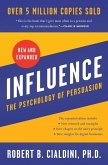Managing interactions between conflicting parties is
a difficult task, and this book provides an empirical
account of mediator stress and the strategies which
may ameliorate it. Drawing upon the practical
knowledge and insights of experienced mediators from
different primary professions and operating in
various environments, it connects their practice with
both role and coping theory.Those in the mediation
profession - trainers, academics and practitioners -
will find new ideas and sharp analysis of the
attributes and competencies necessary for the role,
with a particular focus on social/emotional and
political competence. It also examines how the
ideology of mediation may in itself prompt strain,
and discusses the situational factors which may help
mediators cope. Providing qualitative and
quantitative evidence, the book has relevance for
mediation trainers and practitioners, and for the
organisations which employ them.
a difficult task, and this book provides an empirical
account of mediator stress and the strategies which
may ameliorate it. Drawing upon the practical
knowledge and insights of experienced mediators from
different primary professions and operating in
various environments, it connects their practice with
both role and coping theory.Those in the mediation
profession - trainers, academics and practitioners -
will find new ideas and sharp analysis of the
attributes and competencies necessary for the role,
with a particular focus on social/emotional and
political competence. It also examines how the
ideology of mediation may in itself prompt strain,
and discusses the situational factors which may help
mediators cope. Providing qualitative and
quantitative evidence, the book has relevance for
mediation trainers and practitioners, and for the
organisations which employ them.








